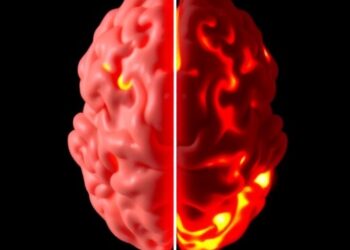In an innovative leap forward in the realm of medical imaging, a groundbreaking study explores the nexus between artificial intelligence and differential evolution in enhancing content-based medical image retrieval. Conducted by a team of researchers led by Tiwari, this study holds the potential to revolutionize how healthcare professionals access and utilize medical images. The implications of this research extend beyond mere efficiency, promising enhanced diagnostic capabilities that could significantly impact patient outcomes.
Differential evolution has garnered attention in various fields due to its effectiveness in optimization. In the context of medical image retrieval, this approach allows for the systematic refinement of codebooks, which are integral for managing the large volumes of imaging data generated in healthcare settings. By optimizing the codebook generation process, the researchers successfully demonstrated an improved mechanism for organizing and retrieving medical images, ultimately facilitating faster and more accurate diagnostic procedures.
The study meticulously outlines the intricate technical framework employed to harness differential evolution for codebook generation. Utilizing a population-based approach, the researchers implemented a series of evolutionary strategies to explore potential solutions. Each iteration of the algorithm leverages the best-performing codebook candidates, gradually refining the pool until an optimal configuration is achieved. This thorough methodological rigor underscores the commitment to precision in developing tools for clinical application.
One of the standout features of this research is the integration of advanced algorithms that mimic natural selection. The researchers designed the system to evolve solutions over generations, promoting only the most effective configurations while dismissing underperforming ones. This strategy not only streamlines the retrieval process but also ensures that the resulting codebooks are tailored to the specific demands of medical imaging.
The study places a significant emphasis on the role of computational efficiency in medical image retrieval. With the growing volume of diagnostic imaging, including MRI and CT scans, the demand for rapid access to images has never been greater. The application of differential evolution addresses this challenge head-on, enabling healthcare providers to retrieve pertinent images within seconds, thus expediting the decision-making process in clinical environments.
Moreover, the researchers underscore the importance of adaptability within their proposed system. The flexibility inherent in differential evolution allows the algorithm to evolve in response to varying datasets, ensuring that it remains effective despite the diverse nature of medical images generated across different institutions. This adaptive capability is crucial in a field where the characteristics of imaging data can vary widely based on factors like patient demographics and imaging technologies.
Another intriguing aspect of this research is its implications for personalized medicine. As the medical imaging landscape becomes increasingly complex, the ability to rapidly retrieve and analyze images can lead to more tailored treatment options for patients. By optimizing the retrieval process, healthcare providers can quickly assess imaging results, enabling them to make informed decisions that align with individual patient needs and medical histories.
The implementation of the proposed codebook generation methodology could also lead to enhanced collaborative efforts in the medical community. As institutions share data and imaging results, the uniformity and efficiency gained from an optimized retrieval system can foster a new standard in interdisciplinary collaboration. This paradigm shift can facilitate shared learning and resource pooling, ultimately enhancing the quality of care across various healthcare settings.
The researchers further highlight the potential for their work to inform future studies. By establishing a robust foundation for differential evolution in medical image retrieval, they pave the way for subsequent research endeavors aimed at refining and expanding upon these findings. Future investigations may explore the integration of other machine learning techniques, enriching the algorithm’s capabilities and broadening its applicability in medical settings.
In conclusion, the pioneering work conducted by Tiwari and colleagues stands at the forefront of technological advancements in healthcare. Their application of differential evolution for codebook generation represents a significant step toward more efficient and effective medical image retrieval. As healthcare continues to embrace digital innovations, this research underscores the importance of harnessing computational power to address the complex challenges posed by medical imaging. The future of medical diagnostics may very well lie in the intelligent solutions developed by increasing our understanding and utilization of differential evolution techniques.
As the study gains traction within the medical community, it is imperative for professionals and researchers alike to remain engaged in discussions about the ethical implications and practical applications of these technologies. The accessibility of faster, more accurate medical image retrieval systems not only has the potential to enhance diagnostic accuracy but also transforms the overall patient care experience, making it an exciting area of ongoing research and development.
Subject of Research: Differential evolution in medical image retrieval.
Article Title: Optimal Codebook Generation Using Differential Evolution for Content-Based Medical Image Retrieval.
Article References:
Tiwari, A., Bhattacharjee, K., Pant, M. et al. Optimal Codebook Generation Using Differential Evolution for Content-Based Medical Image Retrieval.
J. Med. Biol. Eng. (2025). https://doi.org/10.1007/s40846-025-00983-y
Image Credits: AI Generated
DOI:
Keywords: Differential evolution, medical imaging, codebook generation, content-based retrieval, healthcare technology, artificial intelligence.




